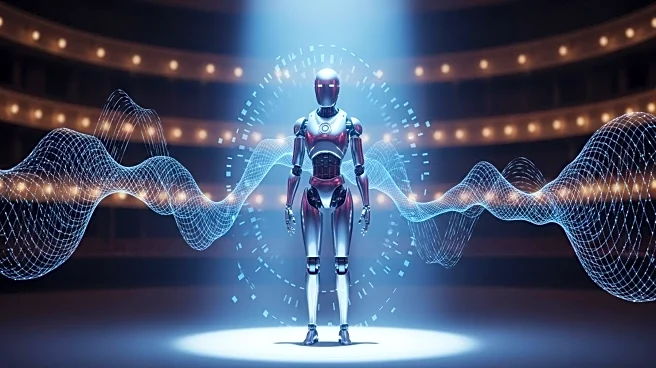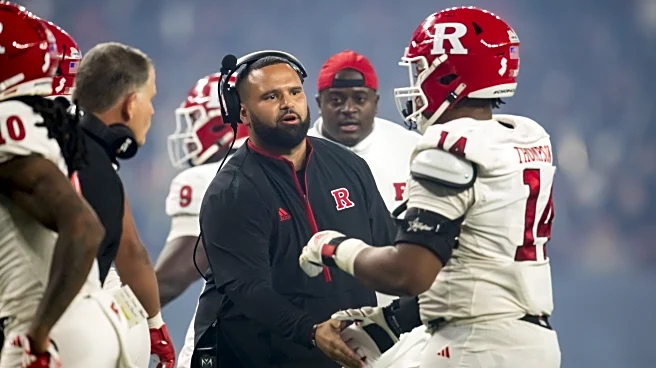What's Happening?
The Television Academy has established guidelines for the use of Generative AI in television production, addressing concerns about creative integrity and ethical practices. The guidelines focus on three key principles: creative integrity, permissions and licenses, and accountability and transparency. This move comes amid growing anxiety in Hollywood about AI's impact on industry jobs and copyright protection. The guidelines were developed by a task force led by Christina Lee Storm, following a survey of the Academy's 30,000-plus members. The initiative aims to educate members on navigating AI's role in preserving creative integrity as the industry evolves.
Why It's Important?
The introduction of AI guidelines by the Television Academy is significant as it addresses the industry's concerns about the ethical use of AI in creative processes. As AI technology becomes more prevalent, there is a need to ensure that it supports and respects the contributions of artists and collaborators. The guidelines aim to protect creative integrity while allowing for innovation in television production. This development reflects broader industry efforts to balance technological advancements with ethical considerations, impacting how content is created and consumed. The guidelines may influence other sectors within the entertainment industry to adopt similar measures.
What's Next?
The Television Academy plans to roll out the guidelines to its members following the Primetime Emmys. As the industry adapts to AI technology, there may be further discussions and developments regarding its integration into creative processes. The guidelines could lead to increased collaboration between AI developers and creative professionals to ensure ethical practices. Additionally, other entertainment organizations may consider implementing similar guidelines to address AI-related concerns. The ongoing dialogue about AI's role in the industry will likely continue, shaping future policies and practices.
Beyond the Headlines
The establishment of AI guidelines highlights the ethical and legal challenges associated with integrating AI into creative industries. As AI technology evolves, there may be debates about its impact on traditional creative roles and the potential for job displacement. The guidelines emphasize the importance of transparency and accountability, which could influence broader discussions about AI's role in society. The focus on ethical practices may also prompt further exploration of AI's capabilities and limitations in creative fields, leading to innovations that enhance rather than replace human creativity.










